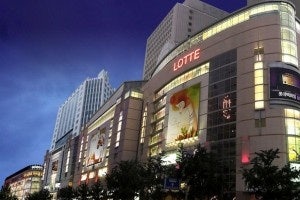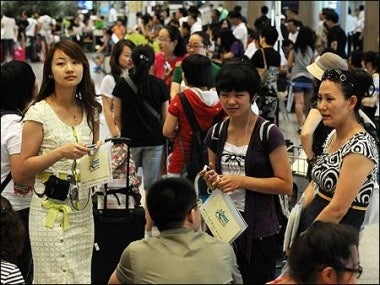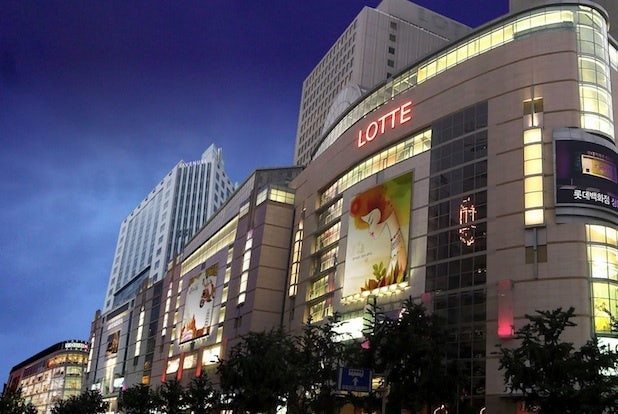"Brands And Retail Operators Need To Adapt Quickly"#

Chinese tourists continue to shell out in Korea for cosmetics, apparel and "meditel"
Having already reshaped the global luxury tourism and hotel market in their own particular way, China's growing legion of outbound tourists is set to grow far larger in the next several years. Projected to take 88 million overseas trips this year, Chinese travelers could take nearly double that -- 155 million trips -- by 2020, according to a new report on regional travel by HSBC.
Already the leading tourist demographic in Thailand and the Maldives, HSBC expects the influence of Chinese tourists to grow further in the Asia-Pacific region in particular, giving brands no choice but to do more to cater to their preferences. Currently, the report points out, tourist-shoppers from mainland China account for anywhere from 15 percent of luxury sales in Taiwan to 75 percent in Macau.
The five markets (Hong Kong, South Korea, Taiwan, Singapore and Macau) vary widely across a range of issues, and each needs to change and adapt in different ways to match the demands of Chinese luxury consumers, according to the report. While traveling to South Korea, for example, Chinese consumers are likely to prefer to shop for Korean brands over others.
“Chinese nationals will likely be under the influence of Korean trends. For imported brands, growth won’t come without a fight,” the report said.
Singapore faces an overcapacity issue in luxury retail, while Hong Kong is poised to continue as a prime destination for mainland retail shoppers. Prospects for the market in Taiwan are a bit less certain, but Macau has proven a surprisingly strong venue, primarily because of its allure to wealthy gamblers and holidaymakers.

Chinese tourists at Korea's Incheon Airport
Owing to similar traditional holiday schedules and geographic proximity, South Korea has been arguably the most effective at catering to Chinese tourists -- who flocked to Seoul's luxury malls last fall during "Golden Week," spending millions on cosmetics, apparel and even "meditel" (medical treatments + hotel stays). In the run-up to Golden Week, luxury retailers dramatically ramped up their overtures to China, with some running advertisements in China’s People’s Daily newspaper celebrating the 20th anniversary of diplomatic ties between South Korea and China.
Also angling for more Chinese tourist-shoppers, Galleria Department Store in Seoul opened its VIP rooms to select Chinese customers and started accepting payment in both Chinese yuan and Hong Kong dollars. The store also beefed up its concierge services, increasing the number of Chinese-speaking staff and handing out special gift certificates to Chinese shoppers who spent at least 1 million won (US$880).
Response to these efforts and other efforts last year was positive, with the Galleria’s Luxury Hall recording a 121 percent sales increase year-over-year between January and July 2012. Another sprawling store, Hyundai Department Store in Seoul’s Apgujeong, itself saw a 95 percent rise in Chinese customers in the first nine months of 2012.
